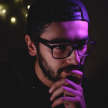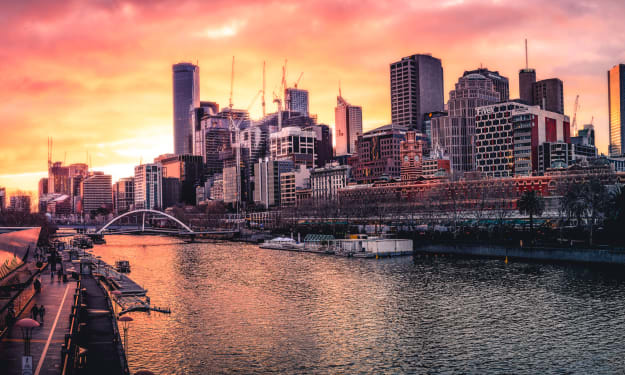Why You Shouldn't Ask "What Settings Did You Use" as a Budding Photographer
"Why asking what specific settings were used for a photo is a bad idea" - A thinking exercise

Disclaimer: This article is a thinking exercise, it doesn't offer much for technical advancement, but more for a philosophical metacognitive advancement.
Have you ever been on a photowalk, or with other photographers, seen a shot they've taken, and thought "that's great! I wonder what settings they've used!" and then you blurt out the question that doesn't actually help your growth as a photographer, "What settings did you use for that shot?" Let's look at why it's more important to ask "why" they used certain settings, and not "what" settings.
Innocent question, but whats the issue with it? Let's break it down.
You see another person's shot, you like the image, you want to recreate something similar, thats great! It's perfectly reasonable to take inspiration from those around you, but, what is it about the image that you like? It's not just "all of it," there is something in particular, and it could be the subtle combination of many elements. Using those settings might get you that shot, but not understanding "why" they used those settings is limiting your room for growth as a photographer.
Is it the shallow depth of field and soft background that makes the image stand out? Or is it the opposite, it seems like EVERYTHING in the photo is sharp from front to back? Is it the perfectly captured stop motion of something that's moving at speed? Or is it a beautiful use of motion in the image that conveys the strongest message?

Asking "what settings?" without the inward reflection on why that image stands out to you isn't helping your growth. Knowing what settings were used in a specific photo doesn't help your knowledge in being able to apply why those settings were impactful in that image, in like-scenarios. When you see a shot you like, have a think about it, a really good think; what am I seeing, what stands out, what do I like, how do I recreate that?
Have you ever tried to take a photo, or recreate a photo, and it just isn't turning out how you envisioned it? Few more tries, then we're frustrated, and we move on, whether that be to the next photo that we want to take, or going home. A breakdown in the process of thinking about how we achieve a photo results in frustration. Frustration can lead to us putting down our cameras indefinitely. Let's avoid that. The beautiful thing that comes from thinking about how to get the shot is that it highlights knowledge or skill deficits. If you don't know something, that is ok! Understanding there is a knowledge/skill deficit gives you direction in what to learn next. When we know something is wrong, we can fix it, when we don't know what's wrong, but know it is wrong, we become frustrated. Don't be frustrated, be better. We are all capable of learning, if we want to.
If you have an understanding of how aperture affects your depth of field and exposure, and how shutter speed affects motion in your shots and exposure, how ISO affects your histogram and exposure, you can combine all of these ingredients more effectively and independently as a photographer.
The other issue with the concept of knowing "settings" as opposed to how your exposure triangle affects the photo, is that light is always changing, and always different. Our eyes are very complex and advanced organs, the light in our environment is always changing, but our eyes and brains are able to keep it somewhat consistent. LED lights interact with cameras differently to our eyes. Cloud coverage affects photos regularly as more light might push through a clearing just as you hit your shutter button. One shopfront's lights might be more intense than another shopfront that you'd like to take a photo of. Learning specific settings, and not how each element affects a photo individually is very limiting and will be one of the biggest challenges you face in transitioning from novice to experienced. Mixing settings masterfully and capturing light how you experience it as a photographer, is an element of what sets fantastic photographers apart from good photographers.
Variations between gear also affects the final image

Full-frame cameras affect depth of field, or compression in images differently to APS-C sensors. Older sensors handle digital noise differently to new generation sensors. Lenses have different qualities, some are sharper, some are softer. Film cameras have softer edges, and types of film have different finishes on them comparatively between brands. Unless you're shooting on exactly the same equipment, at exactly the same time, in exactly the same spot, the photo won't be the same. And that's ok, photography is an individualistic expression of perception, we shouldn't all be taking the same photo with the same settings, from the same angle, with the same gear. The beautiful thing is expressing what YOU want to express.
It's ok to want to know how someone took a shot, but it's infinitely better for your growth to know why they took a shot how they did. This is the important part, the why. The ability to see work and understand what has gone into a shot, will help provide you with the ability to be an independent learner. There's nothing wrong with learning from other people, but being an independent learner will increase your capacity to grow as a photographer, as we're not always going to be out with photographers who are more experienced, or who are always willing to help.
A strong understanding of how changes in shutter speed, changes in aperture, and changes in ISO will affect the final result of an image is infinitely more beneficial to you as a creative, than knowing a specific niche setting, and how that specific combination produces a shot in one environment. Why buy a fish or get given a fish, when you can learn to fish.
It will be frustrating, it will be uncomfortable, it will take a bit of dedication, but it will come when you've changed your thinking.
Don't be frustrated, be better.
Once again, thanks for stopping by! - J
If you found this article interesting, have some questions, or even a bone to pick! Jump on over to my facebook page and feel free to drop a comment on the post about this article! Let's have a chat!







Comments
There are no comments for this story
Be the first to respond and start the conversation.